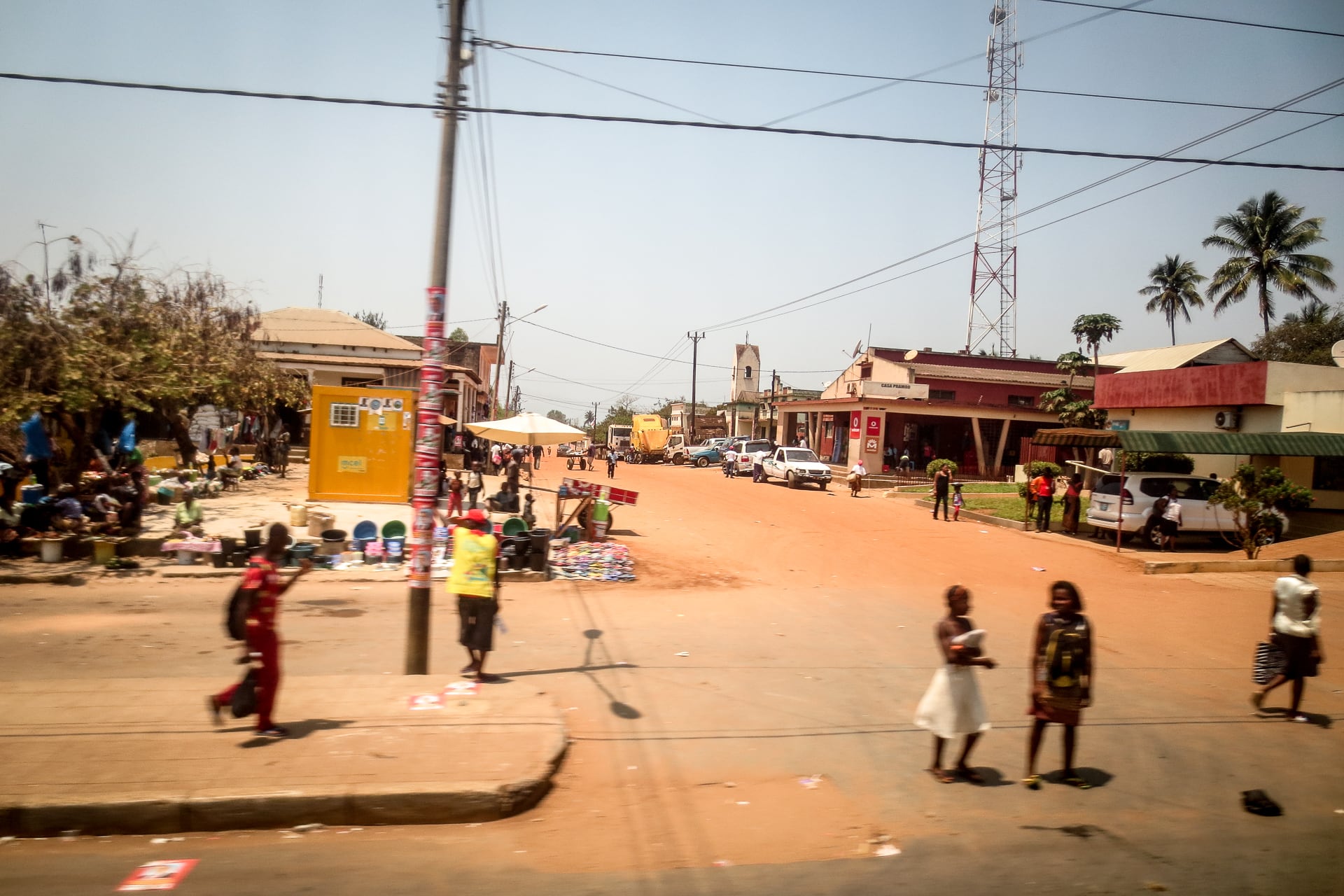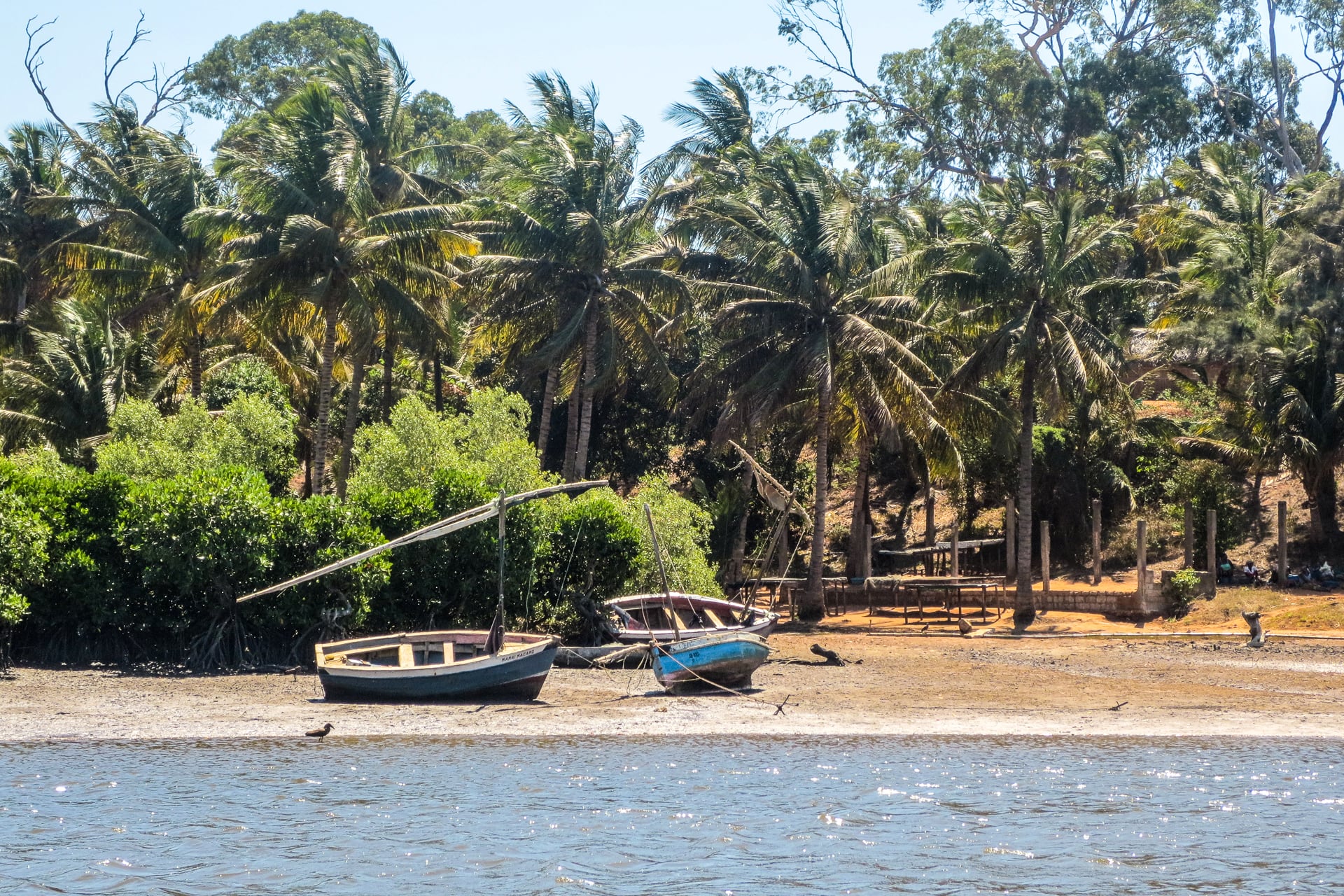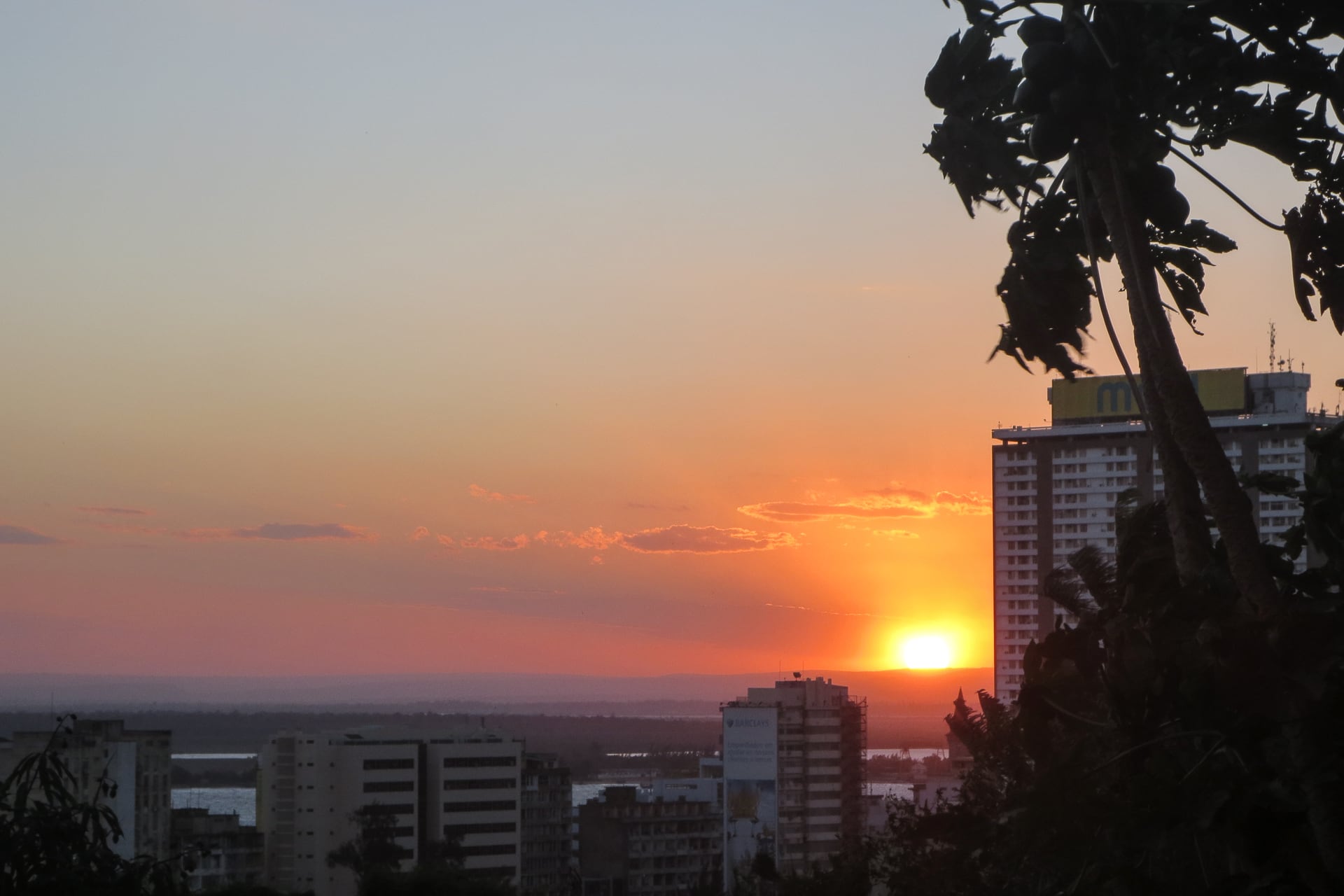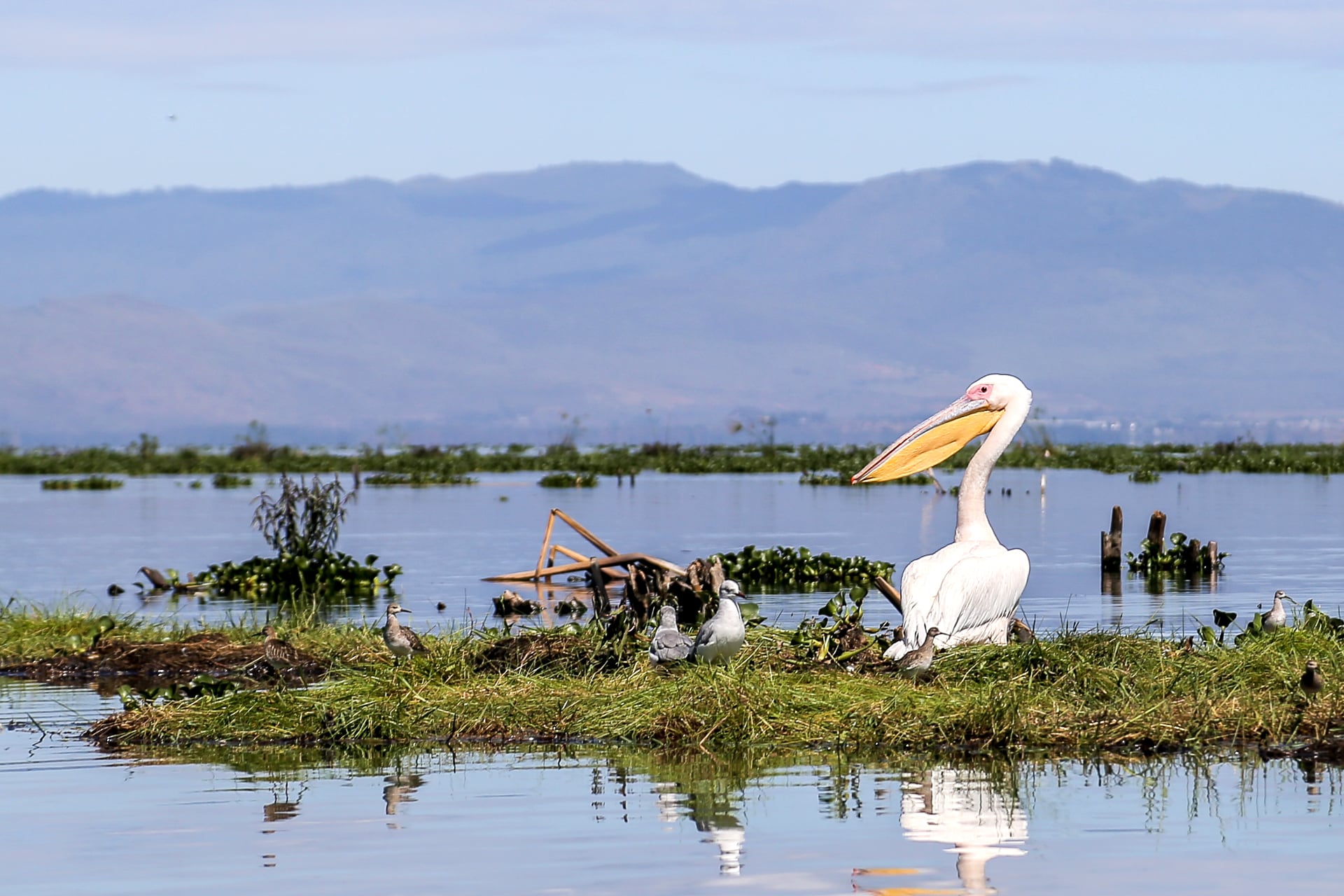A week after rolling into Morrumbene, my old Peace Corps site, for the first time in eight years, I was sipping a cappuccino in a cafe overlooking a timeworn square in Mozambique’s second city, Beira. We were 500 miles north of Morrumbene, slowly making our way ever northward, through the rest of Mozambique, then Tanzania, Kenya, and eventually, Uganda. It was a one-way journey and we would not be heading back south, and I was strangely at peace with this reality.
I wandered in a daze through our first week in Mozambique, waiting for an emotion, any emotion, to hit me. I knew that if any place would elicit an emotional response it would be the town in which I called home for two years, and I was right. The feeling that hit me head-on the moment I stepped off the minibus taxi, however, surprised me. I didn’t exactly want to be there.
The timing and clarity of the emotional response surprised me, but the response itself shouldn’t have.
I think a bit of background is in order here:
Following my departure from Morrumbene in 2006, I spent about a week in Maputo, the capital, processing paperwork, spending time with other Peace Corps volunteers getting ready to leave, visiting my favorite restaurants and sights and thinking about the future. I was apprehensive to return to the U.S. after over two years in Africa fumbling my way through a formative and powerful experience.
I enjoyed Maputo. It had always been a haven for me and a bastion of good memories. When things went south at site, a short stay in Maputo brought perspective, clarity and recharging. Yet, despite the uncertainty of returning “home,” I knew it was time for this chapter to come to an end and I was ready to move on.
For these reasons, I experienced a rollercoaster of mixed emotions during that last week in Maputo. I knew that this was the end of something very significant and things would never be the same, but ultimately found myself very much at peace by the time I took my seat on the plane.
Leaving Morrumbene a week earlier, however, was altogether a completely different experience. I had fallen out of love with my adoptive home many months before my departure. Morrumbene, while at times being a source of great joy, had also been a place of even greater misery. A place that had pushed me to the brink, and in many ways, flung me over the edge, only to repeat the act over and over.
I’d bet that if you asked most returned Peace Corps volunteers what the hardest part of their experience was, very few would list lack of television/internet or material positions, using cold water showers (or bucket baths) and pit toilets, or living without running water or electricity, if applicable, as their top challenges. Yet, I’m often surprised how many non-RPCVs list these sorts of things as chief among their reasons for not wishing to partake in the experience. No, the hardest aspects, undoubtedly, revolve around feelings of loneliness, isolation, privacy, language barriers, trust, betrayal, purpose, effectiveness.
For myself, Morrumbene was center stage — ground zero — where the bulk of the drama unfolded — a school principal that despised me from day one (I was a teacher), a house robbed six times, a serious relationship that ended badly, classrooms of students that became increasingly uncooperative, disrespectful and unmanageable, numerous cultural misunderstandings, disputes over money, lies and cheating, gossiping and backstabbing, serious illness, disease, and violent deaths of students, neighbors and pets, endless days and nights filled with intense doubt, confusion, anger and soul-searching.

The mind has a way of blocking certain memories and enhancing others. Up until the other day, I hadn’t given much thought to any of the negative, largely fixating on the positive — and there were a lot of good times. It wasn’t until recently that I realized so many of those either happened off-site or in the confines of my fenced-in compound.
Peace Corps is a mental marathon. Similarly, few marathoners will dispute that the experience is 100% worth doing after the fact — yet the race itself is characterized by extreme highs and lows, and times of genuine doubt of whether the final objective can be achieved. Yet, step by step, mile by mile, day by day, you keep your gaze focused forward, your eyes on the horizon. You acknowledge the pain, then move ahead; you cling to the little victories which sustain you.
Not everyone makes it to the finish line.
The choice to keep running or not to keep running is deeply personal and depends on your ultimate objective. For some, the final goal is simply to finish. For others, the experience itself is the objective. Still, for others, the ends don’t justify the means, and they pack it in early and move on to something else.
I can’t count the number of times I seriously considered ending my service prematurely, nor the number of times I questioned what the end objective was (or should be) — and I’m quite certain that at no point in the journey did I ever arrive at a satisfactory answer; if I had, I most certainly would have left, as the only concrete answers always seemed in favor of leaving — those in favor of staying were impossible to fully qualify or comprehend in the moment. Not until after the journey was long-complete and the objective long-met did I realize that only with the ability to see the entiriety of the experience, over the vast expanse of days — some of which never seemed to end soon enough — did I understand my experience in its proper context.
Still, I’m certain it will surprise many who read this to learn that, in the end, Lori and I spent a total of two hours in Morrumbene, 1.5 of which was spent either walking to, or waiting at, the pier for our dhow to Linga Linga. I hadn’t shared my feelings with Lori at the time, but they ended up coming out little by little over the next few days strolling along white sands beaches and swimming in tourquoise waters.
The original plan was to spend much more time in Morrumbene on our way back from Linga Linga, but this was not to be. I struggled over the next two days with going back to my town until ultimately the decision was made for me. It’s interesting how the universe works sometimes.
Every other time I had visited Linga Linga, the journey necessitated a return trip through Morrumbene by way of a sailing dhow, or in very rare cases, a 4×4 on a very long, sandy trail. On the morning of our departure, however, Lucio, my friend and proprieter of Lucio’s Place (aka, Funky Monkey) informed us that there was no wind, and that even if there was wind, the tide would be too low to sail back in time for us to reach our final destination for the day (Tofo). The bus northward to Beira only ran on certain days and we had absolutely zero maneuverability with our time. As a result, Lucio offered to take us in his canoe across the bay and drop us off on the opposite shore where we could catch a bus to Maxixe. Because of the timing of everything, this meant the final nail in the coffin of returning to Morrumbene.
Without knowing anything of what I had been struggling with for the past few days, Lucio followed up by saying, “You wouldn’t want to go back through Morrumbene anyway.” The universe had spoken and I found myself at peace with the outcome.
Nevertheless, we did make a point on the way through town to Linga Linga earlier in the week to swing by my old beloved house. I was very pleased to see it still standing, reeds and all, after all of this time. A local woman now occupied it, and there was little hinting to its past inhabitants — the tidy bath house and latrine, and beautiful thatch fence were gone, and my hammock hut must have blown down at some point — but there was no mistaking that the house itself still stood. Lori and I came very close to taking a picture, but ultimately decided we would take one in a few days when we passed back through, perhaps meeting the current resident and taking a look inside. Obviously, neither the return trip nor the photo ever happened. But the memory remains. We saw it, and that’s what’s important. I have plenty of photos of how I want to remember the house. The same can be said for the rest of the town. I’ve revisited enough places to know that you can never go back again, not in the same way.
Something that I’ve realized in coming back here to Mozambique is that I no longer long for bucket baths and hammock naps and conversations with my cat in the way that I once did. This place has been made real again — I’ve plied its waters and roads, engaged its people and been captivated by its spell. It’s still a unique and confounding place, but the ground is sand and asphalt and Mozambicans are flesh and blood. I’m no longer a volunteer working within the confines of a specific organization or role. I’m here in another capacity. The original goal was met and I’m proud and happy for my time here. But today, I get to sip a cappuccino in a cafe overlooking the square with my wife. Next, we’re going to stroll about the different neighborhoods of Beira. Tomorrow, onward, north, to the UNESCO World Heritage town of Ilha de Mocambique, and then, Tanzania, a place I’ve always wanted to visit. Would I trade my time in Mozambique as a Peace Corps volunteer for anything? Heck no. Do I wish I could go back 10 years and relive it all? Not one bit.
You can’t relive the past…
…and sometimes, that’s ok.




David lots of thought provoking stuff here about going back! Happy you were able to share this place with Lori! Thinking of you both! Travel safely! Hugs Bill and Ann
Wow! Sounds like you were able to put things in perspective with your previous stay in “Mo”… P.S. Hope you & Lori were able to drink your fair share of my most favorite beer of all time…Laurentina Preta!
You have done much soul-searching while exploring the tapestry of your past. Thanks for sharing.
Incredible!